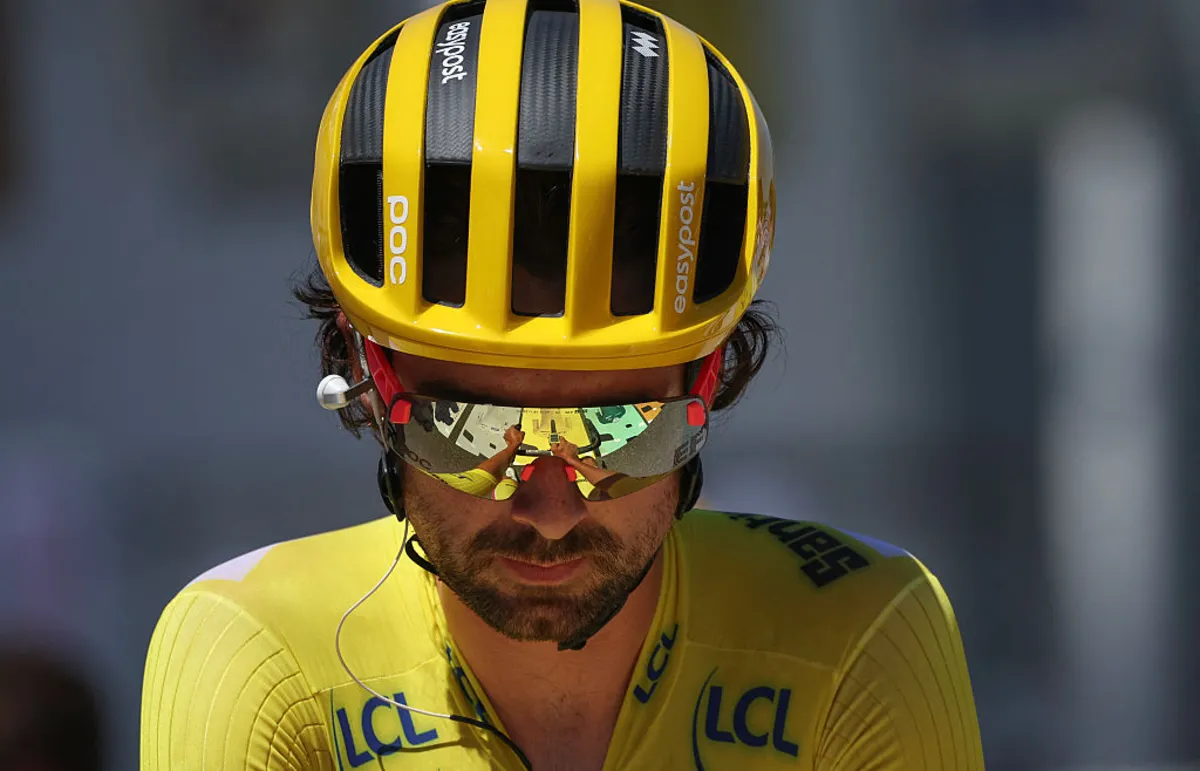
EF Education-EasyPost Manager Jonathan Vaughters recently shed light on a significant moment during the Tour de France when leader Ben Healy made a commendable decision to ask fellow riders in the peloton to slow down after the defending champion Tadej Pogačar from UAE Team Emirates suffered a crash late in stage 11. This incident occurred with just four kilometers remaining in the stage, and instead of the group of general classification (GC) contenders maintaining their pace, Healy's request for the peloton to wait for Pogačar marked a moment of camaraderie and respect among cyclists.
In a press conference following the race, Healy emphasized that the situation was rooted in mutual respect among riders. Vaughters clarified that it was not a directive from the team via radio communication, but rather Healy's own initiative that prompted the peloton to slow down. Healy's position as the Tour de France leader played a crucial role in ensuring that the deceleration occurred, showcasing the importance of leadership and respect in professional cycling.
Historically, the role of a 'patron' within the peloton has been somewhat ambiguous, yet Tour de France leaders have traditionally commanded a significant level of unspoken respect. Former champions like Chris Froome have previously succeeded in getting the peloton to slow down in similar situations. For instance, during the 2015 Tour, Froome's teammates fell, and he managed to secure a reduction in pace, as did the peloton when he himself crashed while leading the 2014 Dauphiné.
Vaughters highlighted Healy's actions during this crucial moment, stating, "That kind of shows what kind of guy he is. He just rode up and basically told everyone to knock it off, because continuing to drive with Pogačar down was bullshit. And I agree with him. It was kind of bullshit." Vaughters praised Healy for not wanting to exploit the misfortunes of others, and expressed relief that Healy was able to persuade the peloton to show this level of sportsmanship.
Other riders also echoed this sentiment. Soudal-QuickStep's Ilan Van Wilder mentioned that his team leader, Remco Evenepoel, was quick to call for a stop in the race upon realizing that Pogačar had crashed. "I honestly didn't know that he'd crashed until Remco suddenly shouted, 'stop, stop, stop'. Everyone immediately stopped riding. I was absolutely stunned; I didn't know he'd crashed," Van Wilder remarked. He further noted his belief in fair play, expressing hope that others would reciprocate if the roles were reversed.
Soudal Sports Director Tom Steels also agreed with the decision made by Healy and Evenepoel, stating that it was not an appropriate time to race, as it would not reflect good sportsmanship. "The battle must be fought fair and square," he affirmed, reinforcing the values of integrity and respect in cycling.
Following the challenging stage 11, which included the steep climbs around Toulouse, Healy retained his lead as the peloton heads into the demanding Pyrenees region. Vaughters shared his thoughts on Healy's upcoming performance, saying, "We'll see what he can do tomorrow. Today was always going to be a little difficult for him, because people say he's a puncher, but he's not a puncher. The reason why he's so good at Amstel Gold and Liège-Bastogne-Liége is because they're such long races and he's actually like a diesel engine." He expressed optimism about the grindy stage ahead, suggesting that it could be advantageous for Healy, who may prove tougher to shake off than some competitors anticipate.